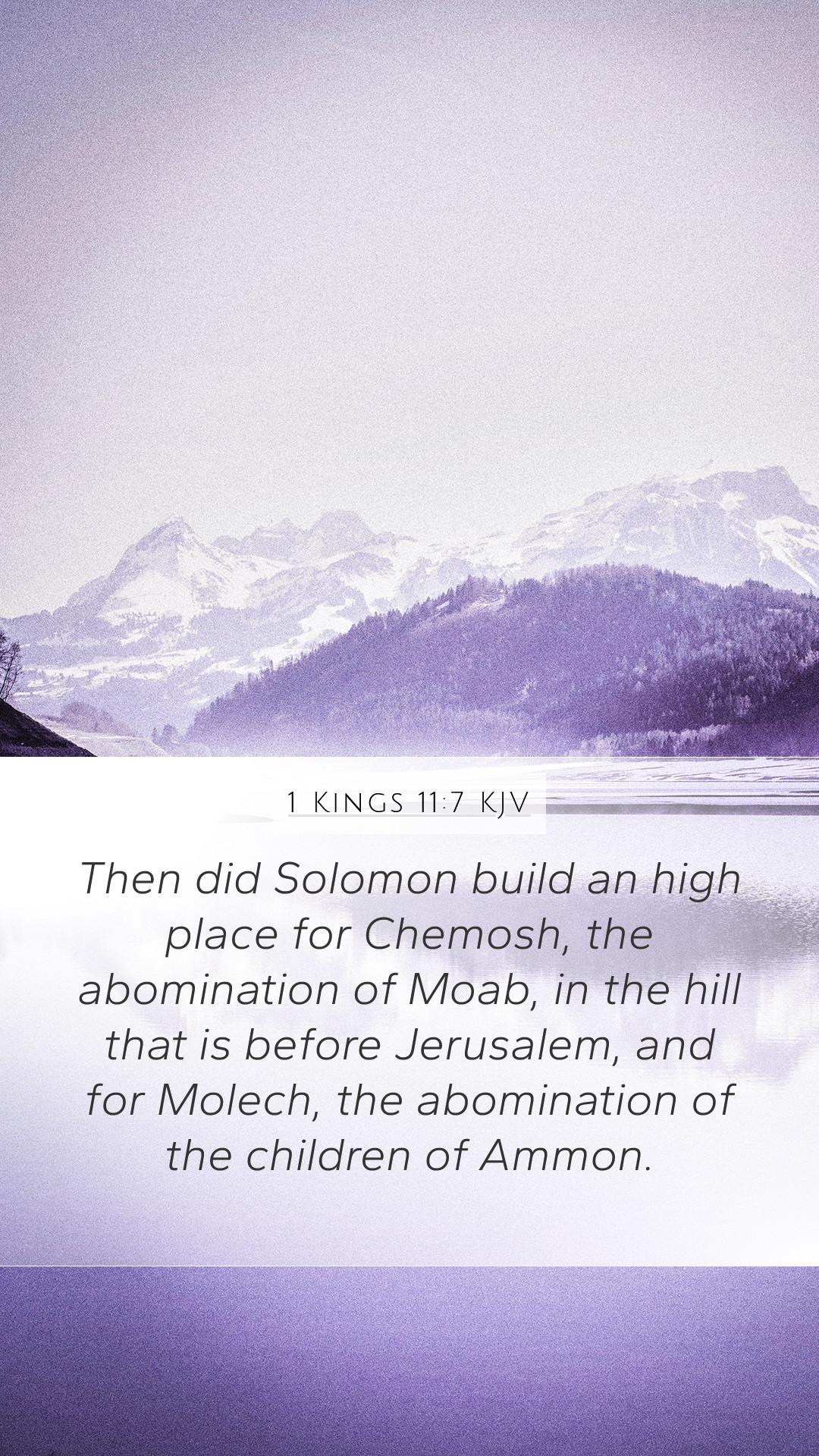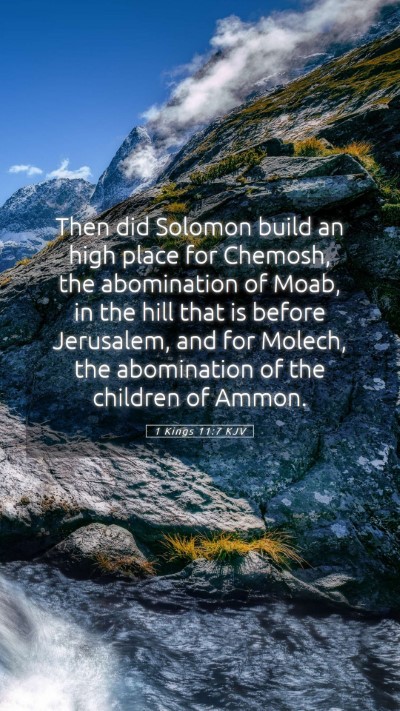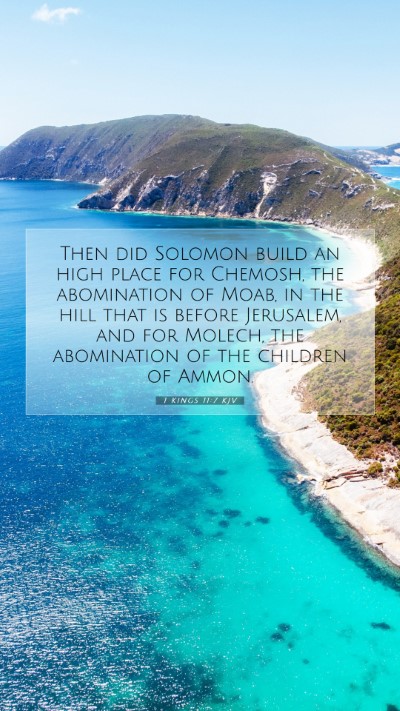Bible Verse Commentary on 1 Kings 11:7
Verse: 1 Kings 11:7 - "Then did Solomon build an high place for Chemosh, the abomination of Moab, in the hill that is before Jerusalem, and for Molech, the abomination of the children of Ammon."
Understanding the Context
In order to deeply appreciate the meaning of this Bible verse, we must first consider the historical and spiritual context. King Solomon, known for his wisdom and wealth, increasingly turned away from the worship of the God of Israel as he aged. The verse directly showcases his descent into idolatry by building high places for foreign gods, specifically Chemosh and Molech, which were considered abominations not only by the Israelites but also within the context of their religious laws.
Bible Verse Meanings and Interpretations
The significance of the high places: According to Matthew Henry's Commentary, the construction of high places signifies a departure from true worship. High places were areas elevated for worship, yet Solomon's selection of Chemosh and Molech represents a troubling embrace of idolatry.
Solomon's motivations: Albert Barnes suggests that Solomon's motivations were influenced by his foreign wives. This led him to compromise his faith in place of unity within his marriages, thus violating God's commandments regarding idolatry.
Spiritual implications: As highlighted by Adam Clarke, this act exhibited a blend of idolatry with the worship of Yahweh. Clarke emphasizes the danger of syncretism, where true faith is diluted by incorporating elements from other beliefs, which was contrary to the Jewish understanding of divine exclusivity.
In-depth Bible Verse Analysis
- Chemosh: Chemosh was the god of war and the primary deity of the Moabites, which reinforces the idea of Solomon engaging in military and mercantile politics through worship of foreign deities.
- Molech: The worship of Molech involved disturbing rituals including child sacrifice, portraying a stark violation of God’s law as articulated throughout the Torah.
- Geographical significance: The location of these high places, mentioned as "the hill that is before Jerusalem," indicates a direct challenge to Jerusalem's spiritual supremacy and the temple of God, suggesting a public endorsement of idolatry within close proximity to the faith's center.
Commentary and Conclusion
The building of high places for Chemosh and Molech is not just an act of worship; it is laden with implications explaining the spiritual failings of Solomon and a forewarning for Israel's future. Henry notes that this shift led to Israel's eventual downfall, as such practices sowed seeds of discontent and rebellion against God’s covenant.
In summary, 1 Kings 11:7 serves as a potent reminder within biblical scripture of the dangers of allowing external influences to corrupt faith. The verse invites believers to reflect on the purity of worship and the importance of adhering strictly to the commandments of God.
Cross References
- Deuteronomy 12:2-4 - Commands regarding the destruction of high places.
- 2 Kings 23:10 - Josiah's reforms against child sacrifice and idol worship.
- Jeremiah 32:35 - God’s condemnation of the children of Israel for offering children to Molech.


